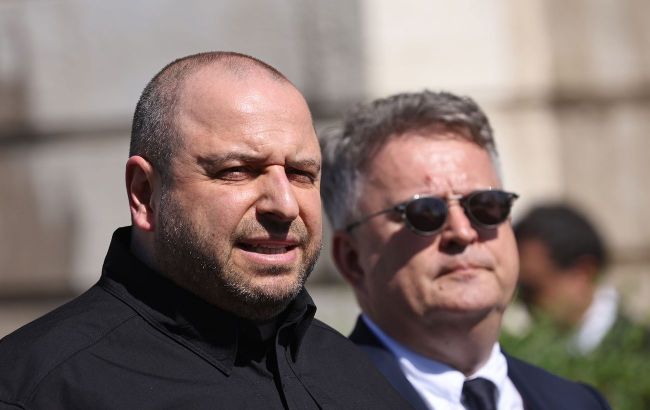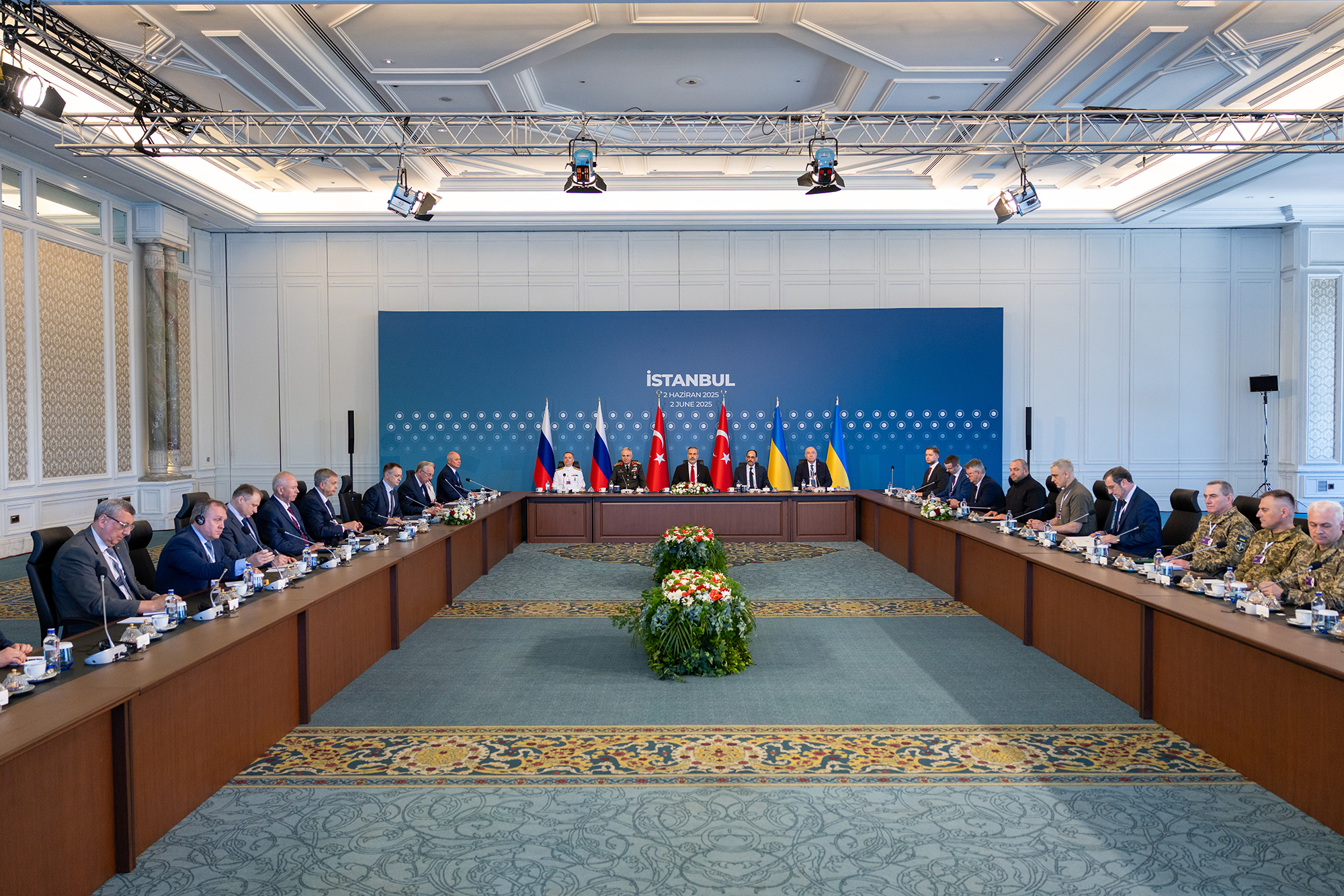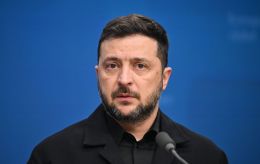Deadlock in Istanbul: Russia demands Ukraine's capitulation while tries Trump's patience
 Ukrainian Defense Minister Rustem Umerov and First Deputy Foreign Minister Sergiy Kyslytsya in Istanbul (photo: Getty Images)
Ukrainian Defense Minister Rustem Umerov and First Deputy Foreign Minister Sergiy Kyslytsya in Istanbul (photo: Getty Images)
What the latest round of Russia–Ukraine talks in Istanbul ended with, whether there is hope for a peaceful resolution, and where to find a way out of the political deadlock - read in the article by RBC-Ukraine.
Key questions:
- Why did no one expect much from the meeting in Istanbul?
- What did the Russians promise the Americans and why didn't they deliver?
- Who can unlock the peace process and how?
Expectations for the second recent meeting between the Ukrainian and Russian delegations in Istanbul were even lower than for the first. Back then, the media still voiced predictions that the first meeting between representatives of the two countries since 2022 could seriously impact the situation.
This time, however, it was clear that no serious progress would be made on issues of peaceful settlement. Even though it was precisely at the meeting that Kyiv and Moscow were supposed to exchange their visions of how peace could be achieved.
However, as RBC-Ukraine had predicted, the memorandums from Ukraine and Russia revealed a fundamental difference in their approaches: the former seeks a ceasefire, while the latter aims to continue the war. And the aggressor state is not agreeing to anything short of Ukraine's capitulation.
Absurd memorandum
Undoubtedly, just six months to a year ago it would have been hard to imagine the Ukrainian and Russian delegations sitting in the same room, even if separated by a mediator (Türkiye). In this regard, Donald Trump’s desire to "end a war that never should have started" is producing some results.
At the very least, both Ukraine and Russia now have to show their general willingness to meet and talk about something. Even if, after the last two rounds in Istanbul, the end of the war hasn't come a single step closer.
However, this old-new platform now seems to have a humanitarian function. Last time, the sides agreed on a large-scale exchange of 1,000-for-1,000. This time - on the exchange of young and severely wounded soldiers, bodies of the dead, and so on. And that outcome is undoubtedly important, making the trips to Istanbul justifiable, at least for that.
As RBC-Ukraine wrote, on the eve of the negotiations, the Russians leaked information to the media about the points in their peace memorandum. Notably absent was one of the most insane demands - that Ukraine voluntarily withdraw its troops from the territories of the Luhansk, Donetsk, Zaporizhzhia, and Kherson regions.
One might assume that this time the Kremlin decided to play a more cunning game and include in its memorandum only points that wouldn't immediately be rejected by the current US administration. For example, Ukraine's NATO membership is removed from the agenda for now. Or calls to end or limit Western aid to Ukraine. Or certain internal political and cultural-humanitarian issues like language, monuments, church affairs, etc., the essence of which would be extremely hard to explain to Americans.
In that case, things would have been more complicated for Ukraine - it would have to maneuver between its red lines and the need to keep demonstrating to Trump its willingness to end the war.
 Talks in Istanbul, June 2 (photo: Getty Images)
Talks in Istanbul, June 2 (photo: Getty Images)
However, Russia didn't bother with such trickery and went with its traditional "frontal assault" approach. The three-page document published by pro-Kremlin media was filled with all of Moscow's usual demands: from troop withdrawal to denazification, from Ukrainian neutrality to limiting the size of Ukraine's armed forces. With such an approach, even a ceasefire, let alone lasting peace, seems absolutely out of reach.
The Kremlin continues to operate by old Soviet diplomatic principles - never give up positions and always demand the maximum possible. The success of Ukraine's Operation Spiderweb right before the talks likely became yet another, though not decisive, factor in Russia's uncompromising stance.
Negotiation deadlock
Even earlier, the American side had asked the Russians to prepare a reasonable document that could be relatively easily and realistically implemented. And the Russians even promised to do so, but brought to Istanbul a memorandum that has nothing to do with either reasonableness or realism.
According to one of RBC-Ukraine's sources from the Ukrainian delegation, "They're just blatantly giving everyone the middle finger." And likely testing the boundaries of what's acceptable to the Americans.
It's worth noting that this has generally worked for them in the past, despite numerous insults toward Trump and his peace initiatives, he has so far limited himself to verbal threats toward Moscow.
This time, everything will depend on how Trump's advisors interpret what happened in Istanbul, the American President himself is certainly not going to meticulously study the documents prepared by Ukraine and Russia (especially considering that even intelligence briefings are now converted to video for his convenience).
Recently, there have been several relatively optimistic signals for Ukraine. Trump himself has started expressing stronger discontent with the Russians, and there has been a noticeable uptick in activity around anti-Russian sanctions. One unexpected development was a visit to Kyiv by Senator Lindsey Graham, co-author of the sanctions bill and someone very close to Trump, known for his exceptional political instincts.
A ready-made plan for pressuring Russia into peace already exists, and it is supported by an overwhelming majority of senators from both parties, all that's left is for Trump to give it the green light.
It's clear the US will still try to push for diplomatic solutions. But for now, there's no clear direction in which the diplomatic process could develop. Zelenskyy is already publicly acknowledging that even a ceasefire is unlikely to be achieved before a summit between the leaders of Ukraine, Russia, the US, and Türkiye as a mediator - let alone a stable peace. On the other hand, according to basic diplomacy principles, leaders only meet when all the core issues have been settled by their teams. And no political resolution is actually happening in Istanbul.
On the one hand, endlessly faking a peace process in Istanbul won't work. Trump has repeatedly set deadlines and expressed his unwillingness to deal with the Russia–Ukraine war for years.
On the other hand, global experience, including conflicts in the 20th century, shows that negotiations involving mediators can go on for years, while military actions continue in parallel. And this lasts until the battlefield situation changes radically, or until one (or both) sides realize that continuing the war brings more losses than gains.
In the context of the current stage of the Russia-Ukraine war, this means the status quo could be shaken by two things. First, the Russians achieved significant success during their summer offensive (which is extremely unlikely). Second, and much more realistic, US sanctions begin to suffocate the already struggling Russian economy, and even the Kremlin realizes that conquering all of Ukraine under such conditions is impossible, and at the very least a pause is needed.
Whether Trump will escalate sanctions pressure or fulfill his long-standing promise to withdraw from the process - that is the main question of the coming days and weeks.

